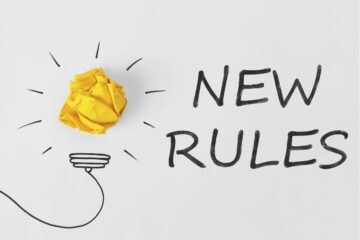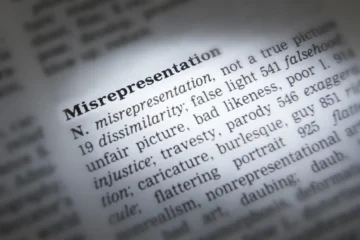Can Debt Collectors blacklist you?
This article provides a comprehensive guide on debt collectors and blacklisting in South Africa. Discover how debt collectors can blacklist you, the consequences of blacklisting, and your legal protections as a consumer. Read on to learn everything you need to know to avoid being a victim of unfair debt collection practices.
By The National Debt Review Center
Can Debt Collectors blacklist you?
Can debt collectors blacklist you in South Africa? Learn about the legal framework for debt collection, the consequences of blacklisting, and your rights and protections as a consumer. Discover how to avoid being blacklisted, how to dispute listings, and the steps you can take to protect your financial future. Stay informed and take action to defend your rights against unfair debt collection practices and blacklisting.
Definition of debt collection and its role in South Africa
Debt collection refers to the process of recovering unpaid debts from individuals or businesses. In South Africa, debt collection is an important aspect of the financial industry, as it helps to ensure that credit is available and accessible to those who need it.
Debt collection is typically carried out by debt collection agencies or attorneys who are authorized by creditors to recover outstanding debts. The role of debt collection is to ensure that creditors receive the money that they are owed, while also providing support and assistance to debtors who may be struggling to pay their debts.
Brief explanation of blacklisting and its consequences
Blacklisting, also known as credit listing, refers to the process of adding a consumer’s name to a credit bureau’s database of individuals who have failed to make timely payments or defaulted on their debts. Once a consumer is blacklisted, it can have serious consequences on their financial well-being, as it can affect their ability to access credit or loans in the future.
Additionally, being blacklisted can lead to higher interest rates, reduced credit limits, and even difficulty in finding employment or housing. Being blacklisted can also have a negative impact on one’s credit score, which is an important measure of creditworthiness used by financial institutions. Overall, being blacklisted can make it difficult for individuals to improve their financial situation and can have long-lasting consequences on their financial future.
Legal framework for debt collection in South Africa
Overview of the National Credit Act
The National Credit Act (NCA) is a piece of legislation that was introduced in South Africa in 2007 to regulate the credit industry and protect the rights of consumers. The NCA sets out a range of rules and regulations that apply to credit providers, debt collectors, and consumers, and is designed to ensure that credit is extended in a responsible and transparent manner.
Under the NCA, credit providers are required to provide clear and accurate information about their products and services, including the costs, fees, and interest rates associated with credit agreements. They are also required to conduct affordability assessments to ensure that consumers can afford the credit they are applying for.
The Act also sets out a range of consumer protections, including the right to access credit reports and dispute any inaccurate information that appears on their credit report. It also prohibits unfair practices such as reckless lending, coercive collection practices, and overcharging of interest and fees.
Overall, the NCA is designed to ensure that the credit industry operates in a fair, transparent, and responsible manner, and that consumers are protected from predatory lending practices and other unfair debt collection practices.
Rights of consumers and debtors under the Act
The National Credit Act (NCA) provides consumers and debtors with a range of rights and protections. These include:
- The right to access credit: The NCA ensures that consumers have access to credit and that credit is extended in a responsible and transparent manner.
- The right to clear and accurate information: Credit providers are required to provide clear and accurate information about their products and services, including the costs, fees, and interest rates associated with credit agreements.
- The right to affordability assessments: Credit providers are required to conduct affordability assessments to ensure that consumers can afford the credit they are applying for.
- The right to dispute incorrect information on their credit report: Consumers have the right to access their credit report and dispute any incorrect or inaccurate information that appears on their report.
- The right to be treated fairly and respectfully: Debt collectors are prohibited from engaging in any unfair or abusive debt collection practices, such as using threatening language or contacting debtors at unreasonable times.
- The right to seek assistance: Debtors have the right to seek assistance from a debt counsellor if they are struggling to repay their debts.
Overall, the NCA is designed to ensure that consumers are treated fairly and that they have access to credit on terms that are affordable and transparent. It also provides debtors with protections against unfair debt collection practices and allows them to seek assistance if they are struggling to repay their debts.
Role of debt collectors and credit bureaus
Debt collectors play an important role in the debt collection process, as they are responsible for collecting debts on behalf of credit providers. They typically work on a commission basis, meaning that they receive a percentage of the amount that they are able to collect from debtors.
Under the National Credit Act (NCA), debt collectors are required to adhere to a range of rules and regulations when collecting debts. They are prohibited from engaging in any unfair or abusive debt collection practices, such as using threatening language or contacting debtors at unreasonable times.
Credit bureaus, on the other hand, are responsible for compiling and maintaining credit reports for individuals and businesses. They collect information from a range of sources, including credit providers, and use this information to create a credit report that provides a summary of an individual’s credit history.
Debt collectors often work closely with credit bureaus, as they use credit reports to determine a debtor’s ability to repay their debts. Credit reports can also be used by debt collectors to track down debtors who have moved or changed their contact information.
Overall, debt collectors and credit bureaus play important roles in the debt collection process. Debt collectors are responsible for collecting debts on behalf of credit providers, while credit bureaus are responsible for compiling and maintaining credit reports that are used to determine a debtor’s ability to repay their debts.
Blacklisting in South Africa
Definition and consequences of blacklisting
In South Africa, blacklisting refers to the practice of listing individuals or businesses on credit bureau databases as being in default or having a history of non-payment of debts. This can have significant consequences, as it can make it difficult or impossible for individuals or businesses to access credit in the future.
When an individual or business is blacklisted, their credit report will show a negative payment history, which can include late payments, missed payments, or defaulting on loans or credit agreements. This negative information can stay on a credit report for up to five years, making it difficult for the individual or business to obtain credit during this time.
Consequences of blacklisting can include being denied credit or loans, being charged higher interest rates on credit and loans, and having difficulty renting a property or obtaining certain types of employment. In some cases, blacklisting can even lead to legal action being taken against the individual or business.
It’s important to note that blacklisting can be avoided by making sure that all debts and credit agreements are paid on time and in full. If an individual or business is struggling to repay their debts, it’s important to seek assistance as soon as possible from a debt counsellor or other financial professional.
How debt collectors use blacklisting as a tool
Debt collectors may use blacklisting as a tool to pressure debtors into paying their debts. By threatening to blacklist a debtor, debt collectors can create a sense of urgency and fear, which may prompt the debtor to make a payment to avoid being blacklisted.
Debt collectors may also use the threat of blacklisting as a negotiation tactic. For example, they may offer to remove a debtor from a blacklist if they agree to a payment plan or settlement offer.
It’s important to note that debt collectors are required to adhere to certain rules and regulations when using blacklisting as a tool. Under the National Credit Act, debt collectors are prohibited from engaging in any unfair or abusive debt collection practices, such as threatening to blacklist a debtor without following proper procedures or using blacklisting as a means of harassment.
In addition, debt collectors are required to provide debtors with written notice before listing them on a credit bureau database. This notice must include the amount of the debt, the credit provider’s details, and information on the debtor’s rights and how to dispute the listing if necessary.
Overall, while debt collectors may use blacklisting as a tool, they are required to follow proper procedures and adhere to the rules and regulations set out in the National Credit Act. It’s important for debtors to be aware of their rights and to seek assistance if they believe that a debt collector is engaging in unfair or abusive debt collection practices.
The impact of blacklisting on creditworthiness and financial opportunities
Being blacklisted can have a significant impact on an individual’s creditworthiness and financial opportunities. When an individual is listed on a credit bureau database as being in default or having a history of non-payment of debts, lenders and credit providers may view them as a higher risk borrower, which can lead to higher interest rates or outright rejection of credit applications.
In addition to being denied credit, being blacklisted can also impact an individual’s ability to rent a property or obtain certain types of employment. Landlords and employers may run credit checks as part of their screening process, and a negative credit report can be a red flag that indicates the individual is not financially responsible or reliable.
Furthermore, being blacklisted can make it difficult for an individual to rebuild their credit score and financial standing. Even after paying off their debts and clearing their name, the negative information on their credit report can stay on file for up to five years, making it difficult for them to access credit during that time.
Overall, being blacklisted can have a significant and long-lasting impact on an individual’s financial opportunities and well-being. It’s important for individuals to take steps to avoid being blacklisted by managing their debts responsibly and seeking assistance if they are struggling to make payments.
Consumer protection against blacklisting
Legal protections against unfair blacklisting
Under the National Credit Act, consumers in South Africa have legal protections against unfair blacklisting. The Act sets out rules and regulations that debt collectors and credit bureaus must follow to ensure that blacklisting is carried out in a fair and transparent manner.
One of the key protections for consumers is the requirement for debt collectors to provide written notice before listing a consumer on a credit bureau database. This notice must include details of the debt, the credit provider’s contact details, and information on the consumer’s rights and how to dispute the listing if necessary. If the debt collector fails to provide this notice, the listing may be deemed unfair and removed.
Consumers also have the right to access their credit reports from credit bureaus and to dispute any incorrect or unfair listings. If a consumer believes that they have been unfairly blacklisted, they can lodge a dispute with the credit bureau and provide evidence to support their claim. The credit bureau is then required to investigate the dispute and make a determination within 20 business days.
In addition, debt collectors are prohibited from engaging in any unfair or abusive debt collection practices, such as using blacklisting as a means of harassment or threatening to blacklist a consumer without following proper procedures.
Overall, consumers in South Africa have legal protections against unfair blacklisting, and it’s important for them to be aware of their rights and to seek assistance if they believe that they have been unfairly treated.
How to dispute blacklisting
If you believe that you have been unfairly blacklisted in South Africa, you can dispute the listing with the credit bureau responsible for the listing. Here are the steps to follow:
- Obtain your credit report: Contact the credit bureau and request a copy of your credit report. You are entitled to one free credit report per year, or you can pay a fee to access additional reports. Or download the My Credit Score South Africa App.
- Review your credit report: Check your credit report carefully and make note of any incorrect or unfair listings. This may include debts that have been paid or settled, or listings that are not yours.
- Lodge a dispute: Write to the credit bureau and lodge a dispute, providing details of the incorrect or unfair listing and any evidence to support your claim. You can also use the credit bureau’s online dispute resolution system if available.
- Wait for a response: The credit bureau is required to investigate your dispute and make a determination within 20 business days. If they agree that the listing is incorrect or unfair, they will remove it from your credit report.
- Escalate the dispute: If the credit bureau does not agree with your dispute, or does not respond within the 20 business day timeframe, you can escalate the dispute to the Credit Ombud, an independent dispute resolution service for the credit industry.
- Seek legal advice: If you are unable to resolve the dispute through the credit bureau or the Credit Ombud, you may need to seek legal advice or assistance from a debt counsellor or consumer rights organisation.
It’s important to act quickly if you believe that you have been unfairly blacklisted, as the longer the listing remains on your credit report, the more difficult it may be to remove it.
How to avoid blacklisting in the first place
To avoid being blacklisted in South Africa, here are some steps that you can take:
- Pay your debts on time: The most effective way to avoid blacklisting is to pay your debts on time. Set up payment reminders or automatic payments to ensure that you never miss a payment.
- Communicate with your creditors: If you are struggling to make payments, communicate with your creditors and try to negotiate a payment plan that you can afford. Ignoring your debts or avoiding communication with your creditors can lead to legal action and blacklisting.
- Check your credit report regularly: Regularly check your credit report from credit bureaus to ensure that there are no incorrect or unfair listings. This can help you identify and dispute any issues before they become a problem.
- Avoid taking on too much debt: Only take on debt that you can afford to repay. Be cautious of high-interest loans or credit offers that seem too good to be true.
- Seek financial advice: If you are struggling with debt, seek the advice of a financial advisor, debt counsellor, or consumer rights organisation. They can help you develop a plan to manage your debts and avoid blacklisting.
Book an Appointment with a Debt Counsellor
You can book an appointment with one of our professionals by following these easy steps. Click the book an appointment page on the above menu or Call 0410125036 or Send a WhatsApp to 0727703674By following these steps and being proactive about managing your debts, you can reduce the risk of being blacklisted in South Africa.
Conclusion
Summary of key points
In summary, here are the key points regarding debt collectors and blacklisting in South Africa:
- Debt collection is the process of pursuing unpaid debts from consumers and businesses.
- Blacklisting refers to the listing of individuals or businesses on credit bureaus’ databases as a result of unpaid debts or other financial issues.
- The National Credit Act is the legal framework that governs debt collection in South Africa, and it outlines the rights of consumers and debtors.
- Debt collectors and credit bureaus play a crucial role in debt collection and blacklisting.
- Blacklisting can have severe consequences on creditworthiness and financial opportunities.
- Consumers have legal protections against unfair blacklisting, including the right to dispute listings with credit bureaus and seek redress through the Credit Ombud.
- To avoid blacklisting, consumers should pay their debts on time, communicate with creditors, check their credit reports regularly, avoid taking on too much debt, and seek financial advice when necessary.
It’s important for consumers to understand their rights and protections against unfair debt collection practices and blacklisting, and to take proactive steps to manage their debts and avoid being blacklisted in the first place.
Call to action for consumers to understand their rights and protections against unfair debt collection practices and blacklisting.
It is crucial for consumers in South Africa to be aware of their rights and protections against unfair debt collection practices and blacklisting. By understanding the legal framework for debt collection, the consequences of blacklisting, and the steps they can take to avoid being blacklisted, consumers can protect themselves and their financial future.
Therefore, if you are struggling with debt or have concerns about debt collection and blacklisting, take the time to educate yourself on your rights and seek the advice of financial experts or consumer rights organisations. Stay informed, be proactive about managing your debts, and take action if you believe your rights have been violated. Together, we can work towards a fair and transparent debt collection system that protects the rights and interests of all parties involved.







0 Comments